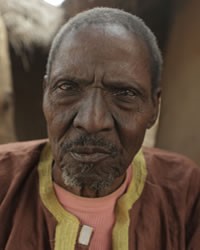Maninka, Kita in Mali

Photo Source:
MovingWorks
|
Send Joshua Project a map of this people group.
|
| People Name: | Maninka, Kita |
| Country: | Mali |
| 10/40 Window: | Yes |
| Population: | 651,000 |
| World Population: | 651,000 |
| Primary Language: | Maninkakan, Kita |
| Primary Religion: | Islam |
| Christian Adherents: | 3.00 % |
| Evangelicals: | 0.20 % |
| Scripture: | New Testament |
| Ministry Resources: | Yes |
| Jesus Film: | Yes |
| Audio Recordings: | Yes |
| People Cluster: | Manding |
| Affinity Bloc: | Sub-Saharan Peoples |
| Progress Level: |
|
Introduction / History
The Maninka are a subgroup of a much larger people group known as the Mande, who inhabit the western portion of Africa's northern plains and coastal forests. The Maninka are known for their ingenuity and leadership qualities, as well as their trading, farming, and mining abilities. They are the descendants of the people of the once great Mali Empire. The empire amassed a great fortune taxing the trade of gold and ivory in the region. Before becoming a part of the empire, the Mande were credited with revolutionizing agriculture in the area; they discovered the use of millet, which has been a staple grain in Africa ever since.
There are a couple of different Maninka subgroups, including the Kita Maninka.
Where Are they Located?
The Maninka people live in nine West African countries, including Mali.
What Are Their Lives Like?
Within Kita Maninka villages, families live in separate, fenced-in compounds. Their homes are round, thatch-roof huts made of mud and sun-dried brick. Few of the homes have electricity or running water. The Maninka primarily work as farmers, miners, or merchants. Cattle are also raised, but only to gain prestige within the community or to use in ceremonies.
While each village is ruled by its own chief, the oldest descendants of the first Maninka settlers are counted as nobility and also have a certain amount of authority. There is a clear social order among the Maninka that ranges from nobility to commoners. Those with the highest status are, surprisingly, the musicians and the blacksmiths. When a Maninka singer dies, his library of original music must be burned. The Maninka people believe that blacksmiths have magical powers. The lowest and most despised class consists of former slaves.
Maninka society is patriarchal, or male-dominated. The line of descent is traced through the fathers, and inheritances are passed down through the males. Men commonly have more than one wife.
Some of the Maninka prefer living in cities where they can develop a trade or work in a service occupation. Nevertheless, while living in the cities, they usually remain attached to their villages in some way.
What Are Their Beliefs?
The vast majority of the Kita Maninka are Muslim. However, their Islamic beliefs have been blended with their traditional beliefs, which involved worshiping the spirits of the land. Healing, magic, and divination are also important aspects of their traditional religion. It is not uncommon for someone to first pray in the village mosque, then sacrifice a chicken to the village spirit.
Many of the Maninka consult marabouts (Muslim holy men) for healing, protective amulets, or insight into the future. Educated villagers may conceal their beliefs in magic, yet, most of them still carry amulets.
What Are Their Needs?
Very few of the Maninka follow Christ. Although some Christian resources are available to them, the Maninka seem extremely devoted to their own beliefs. Prayer is the main key to opening the hearts of the Kita Maninka to the gospel.
Prayer Points
Ask the Lord of the harvest to thrust forth long-term laborers to the Kita Maninka people in Mali.
Ask the Holy Spirit to grant wisdom and favor to any mission agencies currently focusing on the Maninka.
Pray that God will give the Maninka believers boldness to share Christ with their own people.
Pray for culturally appropriate radio broadcasts in the language of the Kita Maninka people.
Ask the Lord to bring forth a triumphant Kita Maninka church for the glory of His name.